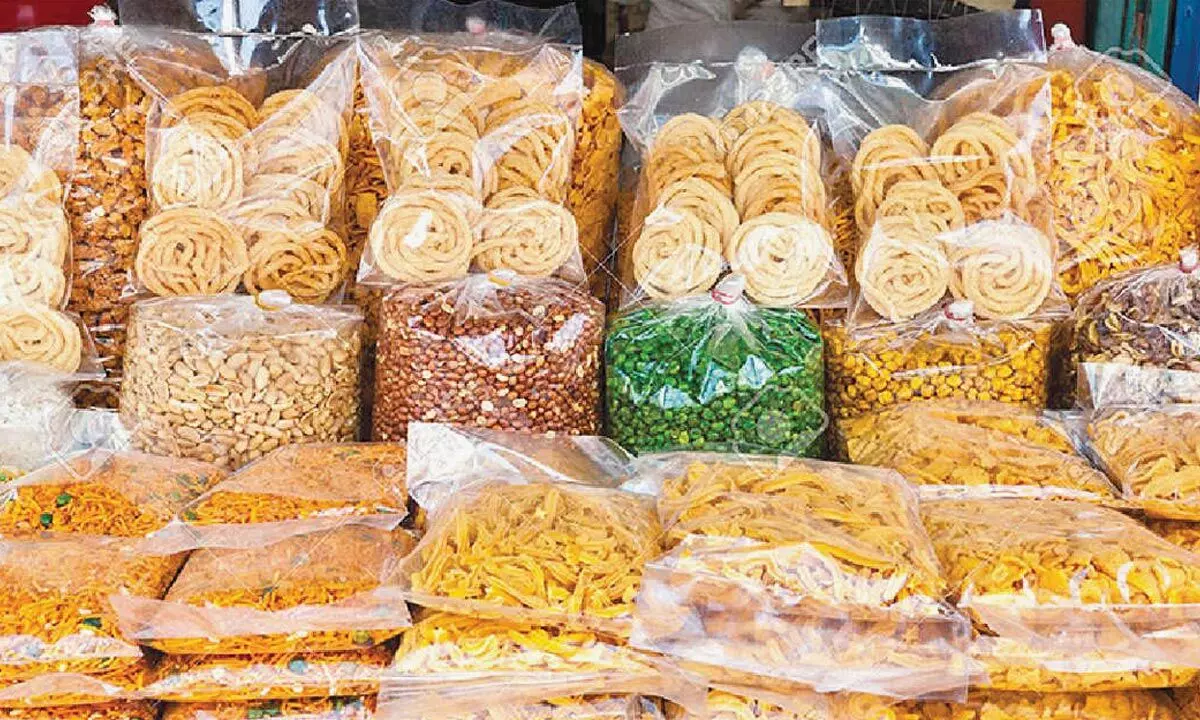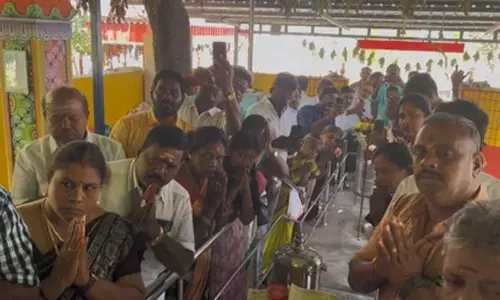Why packaged foods make a killing

Packaged foods, such as ready-to-eat noodles or parathas, offer quick and easy meal solutions, and their accessibility has significantly improved due to the growth of e-commerce. Additionally, affordability has increased, making products like chips-- once considered a luxury-- a common daily item
Ruhi Shelke, a working professional in her early 20s, likes the banana chips from her favourite local chain, Hot Chips. “They make it hot and fresh right in front of my eyes,” she says. The outlet claims to be using sunflower oil, but the clear plastic packaging does not specify the amount of salt or sugar used, nor is there any supervision over the number of times the oil is reused for frying.
Weak regulation, lax government oversight, and low consumer awareness of the contents of packaged food means that the Indian ready-to-eat snacks market, worth Rs 50,000 crore, is putting the health of millions at risk, our reporting shows.
“Rising consumption of ultra-processed foods increases the risk of health issues like diabetes, obesity and heart disease across all economic groups,” says Arun Gupta, convenor of Nutrition Advocacy in Public Interest–India (NAPi), a Delhi-based think-tank.
The problem is compounded by the fact that the ready-to-eat snacks market is populated by numerous unorganised and small producers, hard to track and check. These producers cater to specific regional markets and preferences, and often operate within specific states or cities, according to a regulatory filing by Pratap Snacks, the company that makes ‘Yellow Diamond Chips’.
In addition, the aggressive marketing of unhealthy ultra-processed foods--coupled with the rising costs of nutritious food, as IndiaSpend reported in August--has enhanced the need for stronger regulatory enforcement of packaged food, as current efforts fall short in safeguarding public health, experts say.
The term ‘processed food’ is broad, and also includes food items such as frozen vegetables, oil and curds, paneer etc. But for this analysis, we are looking at ultra-processed foods (such as soft drinks, packaged potato chips, etc.), also known as ‘high in fat, sugar and salt’ foods. These can be any food item or drink, packaged or unpackaged, that contains low amounts of protein, vitamins, phytochemicals, minerals and dietary fibre, but are rich in fat (saturated fatty acids), salt and sugar and high in calories, and are known to have a negative impact on health, if consumed regularly or in high amounts, according to the Ministry of Women and Child Development.
The latest survey from the National Sample Survey Office showed a shift in dietary patterns of Indians. Both urban and rural households spent the largest proportion of their monthly per capita consumption expenditure (MPCE) on beverages, refreshments and processed food, at Rs 363 (9.6% of MPCE) for rural households, and Rs 687 (10.6% of MPCE) for urban households. The increase in this spending over time highlights a growing preference for these food groups.
“There are multiple factors contributing to the rise in packaged food consumption, with convenience being a key driver,” says Srilasya Nookala, an agriculture and food expert who has worked with the Foundation for Development of Rural Value Chains, a joint initiative of the rural development ministry and Tata Trusts. She explains that packaged foods, such as ready-to-eat noodles or parathas, offer quick and easy meal solutions, and their accessibility has significantly improved due to the growth of e-commerce. Additionally, Nookala says, affordability has increased, making products like chips--once considered a luxury--a common daily item.
Unorganised producers of processed foods account for 80% of the market share, as per a 2023 study by the World Health Organization. Over 70% of sales of processed food is through independent small grocers (kirana stores) or the unorganised sector, the analysis found.
Many small ultra-processed food producers are unaware of FSSAI’s rules and regulations, according to an Indian Council for Research on International Economic Relations (ICRIER) paper, looking at India’s food regulations ecosystem.
The FSSAI is responsible for regulating food safety across the country, setting science-based standards for food manufacture, storage and distribution under the Food Safety and Standards Act, 2006. However, significant gaps exist in enforcing these regulations, particularly at the state level. While the FSSAI operates through regional offices and state food safety authorities, experts say and reports show that weak monitoring, resource constraints and ineffective infrastructure hinder its ability to ensure compliance.
The CAG audit also highlighted inefficiencies in FSSAI staffing, with 261 of the 356 positions filled by contractual employees. Many of these employees lacked clearly defined work requirements or time frames, further weakening the agency’s ability to enforce regulations effectively.
Experts also say that vague language in FSSAI regulations allows large food companies to exploit loopholes and make misleading claims. A 2023 study, by researchers at the Guru Nanak Dev University and Khalsa College in Amritsar, tested 230 products and found that 124 unhealthy products featured nutrition marketing, despite being high in saturated fats, total fats, sugars or sodium.
Coupled with easy access, weak regulation and lax enforcement of laws, consumer ignorance is pushing up sales of processed food. A 2022 study of 2,024 respondents across 14 states found that over half (55.4%) of the respondents considered packaged foods as healthy. A smaller 2018 study, with 153 participants, found that only 76% checked for food labels every time during purchase and only 7.2% reported that understanding the food label was easy.
India faces a growing public health challenge with the double burden of the rise of non-communicable diseases alongside malnutrition. Ultra-processed food is associated with weight gain, obesity, type-2 diabetes and hypertension, with research showing a higher diabetes risk from increased intake of sweets and snacks in India.
The National Family and Health Survey (2019-21) shows obesity among children under five has increased in 20 of 22 states since 2015-16. Among adults, overweight and obesity rates have risen to 21% of women and 19% of men in 2015-16, up from 13% and 9.3%, respectively, in 2005-06, according to a 2022 study by researchers based in the UK.
(https://www.indiaspend.com)














